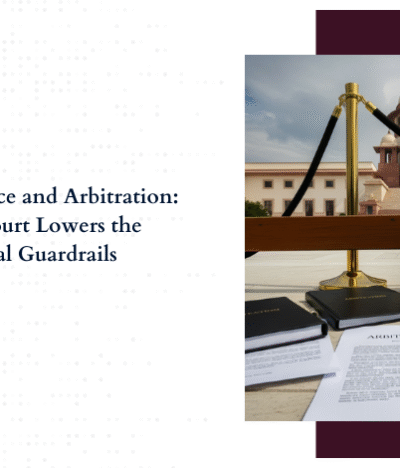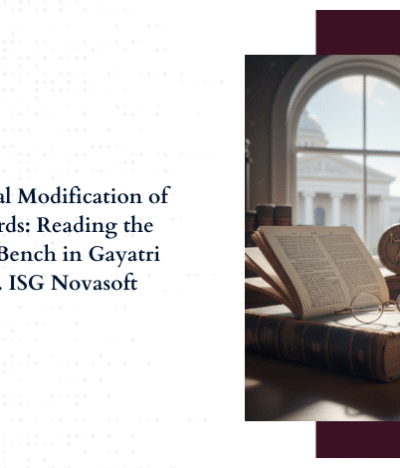Can a grandfather in India transfer property to his grandson? The transfer of property from grandfather to grandson can be done through gift deed, sale deed, testamentary succession or intestate succession it involves navigating a complex legal landscape governed by the Hindu Succession Act, 1956 or other personal laws depending on religion, this act prescribes the rules of intestate succession, ensuring that the property is equitably distributed among the legal heirs. When a grandfather passes away without leaving a will, his property is typically divided among his Class I heirs, which may include his widow, sons, daughters and the children of any predeceased sons or daughters.
Key legal challenges in property transfer from a grandfather to a grandson include establishing a clear title and resolving any disputes over ownership. The process may require obtaining succession certificates or legal heir certificates, especially for immovable assets. These can significantly complicate the transfer, necessitating professional legal assistance to ensure a smooth property transfer from the grandfather to the grandson.
How to Transfer Property from Grandfather to Grandson in India
The transfer of property from a grandfather to a grandson holds significance in shaping generational wealth and inheritance dynamics. In India, property transfer from grandfather to grandson encompasses various legal mechanisms, each governed by distinct legal frameworks and procedural intricacies. This article delves into the landscape of property transfer from grandfather to grandson in India, exploring key methods such as gift deeds, sale deeds, testamentary wills and Intestate succession.
1. Transfer Through Gift Deed
A commonly used method for transferring property from a grandfather to a grandson in India is through a gift deed. A gift deed is a legal document that signifies the voluntary transfer of property ownership from one party, the donor (grandfather), to another party, the donee (grandson), without any consideration.
1.1. Drafting of Gift Deed
The gift deed must be drafted by the grandfather in favour of the grandson, it should include essential details such as the description of the property and details of the donor and donee. It should clearly state that the transfer property is without any monetary exchange.
1.2. Acceptance by the Donee
The grandson must accept the gift during the lifetime of the grandfather.
1.3. Stamp Duty Payment
Stamp duty must be paid on the gift deed as per the applicable rates prescribed by the respective state government. The stamp duty amount varies depending on factors such as the nature and location of the property and its market value.
In Delhi, stamp duty and transfer duty amount to 4% of the circle rate for female donees and 6% for male donees.
In Karnataka, stamp duty rates are 3% for those valued below Rs. 45 lakhs and 2% for properties valued between Rs. 45 lakhs and Rs. 90 lakhs, while properties exceeding Rs. 90 lakhs incur a 5% stamp duty.
1.4. Execution and Registration
Upon drafting, the gift deed must be executed by the donor and donee in the presence of two witnesses. Subsequently, the deed must be registered at the office of the Sub-Registrar within the jurisdiction where the property is situated. Both parties, along with the witnesses, are required to be physically present during the registration process.
1.5. Documents Required
- Drafted Gift Deed
- Proof of Identity
- Property Documents
- Encumbrance Certificate
- No Objection Certificate (if applicable)
- Proof of Payment of Stamp Duty
2. Transfer Through Sale Deed
Another method of property transfer from a grandfather to a grandson in India is through a sale deed with consideration. Unlike a gift deed, this method involves the exchange of property for monetary consideration, thereby creating a buyer-seller relationship between the parties.
2.1. Agreement to Sell
The grandfather and grandson negotiate the terms of the property sale, including the sale price, payment schedule and any other relevant conditions. Upon reaching an agreement, both parties enter into a contract for sale outlining the agreed-upon terms.
2.2. Drafting of Sale Deed
A sale deed is drafted incorporating the terms of the contract for sale, including the description of the property, sale consideration, mode of payment and rights and obligations of the parties.
2.3. Execution
The sale deed must be executed by both the grandfather (seller) and grandson (buyer) in the presence of two witnesses, who shall also sign the sale deed.
2.4. Stamp Duty and Registration
Stamp duty must be paid on the sale deed as per the rates prescribed by the respective state government. The sale deed, along with the payment of stamp duty, must be registered at the office of the Sub-Registrar within the jurisdiction where the property is situated.
2.5. Mutation of Property
The grandson, as the new owner of the property, must submit an application for mutation to the concerned revenue authority or municipal corporation within the jurisdiction where the property is located.
3. Transfer through Succession
Transfer through succession refers to the process by which property is passed on to legal heirs after the death of the owner, in accordance with inheritance laws. This transfer can occur either through a will (testamentary succession) or by operation of law when there is no will (intestate succession), ensuring that the deceased’s estate is distributed among rightful heirs.
3.1. Through Testamentary Succession
When a grandfather (testator) wishes to transfer his property to his grandson through a testamentary will, he must adhere to the following legal process:
3.1.1. The Will
The grandfather must draft a testamentary will that clearly outlines his intentions regarding the distribution of his property among beneficiaries, including his grandson.
The will should specify the property to be transferred, the conditions, if any, attached to the transfer, and the appointment of an executor to administer the estate. While registration of a will is not mandatory, it is advisable to register the will with the competent authority to ensure its validity and authenticity.
3.1.2. Declaration of Title Suit
The grandson (plaintiff) files a declaration of title suit in the appropriate civil court seeking a judicial declaration of his ownership rights over the property. The plaintiff presents evidence, including documents supporting his claim to the property, such as the grandfather’s will or any other relevant legal instruments. Based on the evidence, the court issues a decree declaring the grandson’s title to the property.
3.1.3. Probate (if required)
After the testator’s death, in some states, it is a mandatory process for the grandson to apply for a probate from the competent court. A probate is a legal certification of the will’s validity and authorizes the executor to administer the estate as per the terms of the will.
3.1.4. Mutation of Property
After obtaining probate, the grandson must apply for the mutation of the property in the local municipal or revenue office to update the property records.
3.2 Intestate Succession (Without Will)
Intestate succession refers to the legal process of distributing a deceased person’s property when they die without leaving a valid will. Under the Hindu Succession Act, 1956, the property is distributed among the legal heirs according to a predefined order of succession
3.2.1. Identification of Legal Heirs
In the absence of a will, the legal heirs of the deceased grandfather are determined based on the laws of intestate succession, which may vary depending on personal laws applicable to the individual’s religion. Typically, the grandchildren inherit a share in the property if their parent (deceased child of the grandfather) is also deceased, with the specific share determined by the applicable laws. Commonly, legal heirs include the surviving spouse, children (including grandchildren), and other blood relatives as per the hierarchy established by law.
3.2.2. Legal heir/Succession Certificate
The legal heirs, including the grandson, must submit an application to the relevant authority, typically the district court, providing details such as the deceased grandfather’s name, date of death and details of the surviving legal heirs. The authority conducts an inquiry to verify the authenticity of the application and the claim of the legal heirs. Upon satisfying the requirements, the authority issues either a Legal Heir Certificate or a Succession Certificate, depending on the purpose,
3.2.3. Partition and Distribution
Upon determining the legal heirs and their respective shares, the property undergoes partition among the heirs as per their entitlements under the law of intestate succession. The Hindu Succession Act classifies heirs into different categories. For intestate succession, Class I heirs include the deceased’s widow, sons, daughters, and the children of any predeceased sons or daughters. If a parent (through whom the grandson is related) is predeceased, the grandson inherits their parent’s share.
3.2.4. Mutation of Property
Mutation is the process of updating the government records to reflect the new ownership. The application for mutation is made to the local municipal authority.
Common Challenges of Transferring Property from Grandfather to Grandson
A property transfer from a grandfather to a grandson in India involves several challenges, both legal and procedural. Here are some common challenges encountered:
Legal Heirship and Succession Laws
When a grandfather dies without a will (intestate), the property is distributed according to the law of succession applicable (Hindu Succession Act, 1956 for Hindus, for instance). This can lead to disputes among heirs, especially if there are multiple children and spouses who believe they have a rightful share. Even if there is a will, its authenticity and clarity can be challenged by other family members, leading to lengthy legal battles to prove its validity.
Mutual Consent
Disagreements among family members about the distribution of property can lead to conflicts. For instance, siblings or other relatives may feel entitled to a portion of the property, and their objections can stall the transfer process. Obtaining consent from all legal heirs is often difficult, as one disagreeing heir can challenge or delay the process through legal channels.
Documentation and Legal Procedures
Any unresolved disputes, encumbrances, or unclear titles can prevent the transfer from proceeding smoothly. Ensuring a clear title often involves meticulous verification and resolution of past issues. Incomplete or incorrectly prepared documents can lead to rejection by registration authorities. Legal formalities such as drafting a gift deed or relinquishment deed need to be precise and legally sound.
Court Interventions
If the will must be probated (especially in states where this is mandatory), it involves a court procedure to authenticate the will, which can be time-consuming and involve legal fees. Any challenge to the will or the transfer can lead to litigation. Legal battles can be prolonged, costly, and emotionally taxing for the family involved.
Conclusion
Transferring property from a grandfather to a grandson in India is a multifaceted process that involves understanding various legal mechanisms and navigating procedural intricacies. Whether through a gift deed, sale deed, or succession, each method requires careful adherence to legal requirements to ensure a smooth transfer. The key to a successful property transfer lies in meticulous planning, clear documentation, and often, professional legal assistance. Addressing potential disputes early and ensuring compliance with legal formalities can significantly mitigate the complexities involved.
Ensure Your Family’s Legacy with Expert Guidance
To ensure a seamless property transfer from a grandfather to a grandson, you just consult experts for your property transfer needs. ACM Legal’s expertise in handling such matters with precision ensures that all legal formalities are correctly addressed, and potential issues are proactively managed. This professional approach not only safeguards your interests but also facilitates a smooth and efficient property transfer process.
FAQs
1. How to transfer property from a grandfather to a grandson in India?
In India, property transfer from a grandfather to a grandson can occur through various legal avenues. If the grandfather wishes to transfer ownership during his lifetime, he can opt for a gift deed, where the property is transferred to the grandson without consideration, or a sale deed, involving the exchange of property for monetary compensation. Alternatively, the grandfather can specify his intentions through a testamentary will, dictating the distribution of assets. In the absence of a will, the property transfers through intestate succession, governed by the laws of inheritance,
2. What are the conditions under which a grandfather can legally transfer property to his grandson in India?
In India, a grandfather can legally transfer property to his grandson through various methods, including a gift deed, sale deed or testamentary will. The transfer must adhere to legal formalities such as drafting a valid document, registration (where applicable), and compliance with stamp duty regulations. Additionally, the transfer should be voluntary, without coercion or fraud and the grandson must accept the transfer willingly.
3. How long does the property transfer process take from a grandfather to a grandson?
The duration of the property transfer process from a grandfather to a grandson in India varies depending on the chosen method. A gift deed transfer typically takes a few weeks to complete, involving drafting the deed, obtaining signatures and registering it with the appropriate authority. A sale deed transfer may take a similar timeframe, while a transfer through a testamentary will can take longer, potentially several months, as it involves probate proceedings and legal validation.
4. Can a grandfather revoke the transfer of property after it has been completed?
In general, once a transfer of property from a grandfather to a grandson is completed through a legally recognized method such as a gift deed, sale deed, or will, it cannot be revoked unilaterally by the grandfather. Once the transfer is finalized and legally executed, the ownership rights to the property are transferred to the grandson, and the grandfather typically loses the authority to revoke the transfer without the grandson’s consent.
5. What are common legal challenges in transferring property from a grandfather to a grandson?
Transferring property from a grandfather to a grandson presents several legal challenges. Key issues include verifying a clear title and resolving any existing disputes over the property. Intestate succession laws under the Hindu Succession Act, 1956, can complicate matters, as property is distributed among all legal heirs, potentially leading to disputes among family members. Additionally, obtaining the necessary legal documents, such as succession certificates and ensuring compliance with local laws can be complex and time-consuming.






